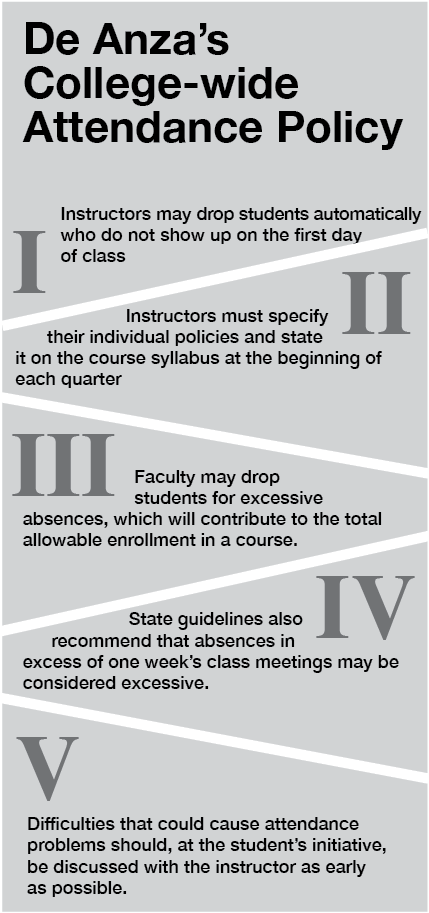Missing class doesn’t always mean missing out
February 16, 2016
“Students’ success is directly linked to attendance.” Please, spare me the lecture. 
A few years ago, one of my math professors pulled me aside to discuss the exam I just aced. To my surprise, instead of praising my performance, she said, “I don’t think you deserve this A.”
The professor based her argument on the premise that an A should only be awarded to students with near-perfect attendance and active participation. Anyone who doesn’t fit the archetype isn’t trying hard enough. What she didn’t realize was that I’m more of a solitary learner, especially when it comes to subjects like math and science.
Mandatory attendance policies are supposedly enforced to enhance students’ learning. Under the current school-wide policy, teachers cannot directly reduce a student’s grade for low attendance.
However, teachers can still factor attendance under the category of participation – a loophole that can hurt students’ grades.
Many professors allow students up to three unexcused absences, after which the professor may drop the student from the class.
In the case of my math class, I admit, I seldom attended lectures. But outside the classroom, I labored over homework questions and spent hours watching Khan Academy videos to make sure I understood everything.
Attendance can be valuable, but it shouldn’t affect students’ grades because it doesn’t accurately measure their understanding of the subject matter. If students submit high-quality work and understands the material, they should not be penalized for their poor attendance.
Some instructors argue that showing up to class doesn’t necessarily help foster a better learning environment for other peers, asserting necessity of student attendance. If a student comes to class to mark the attendance roster and sleeps in the corner or disrupts other students, is the classroom environment strengthened?
Some instructors choose to grade class participation in lieu of attendance. The problem is that what qualifies as participation is subjective.
In my experience, class discussions are the primary source of participation points, a practice that discriminates against shy and soft-spoken students. It’s especially intimidating if they find themselves surrounded by opinionated students.
A silent student isn’t necessarily an indifferent one.
With the exception of labs, language and communication classes, attendance and participation aren’t integral to understanding the material.
Students shouldn’t be graded on attendance and participation. We should be graded on the effort we put into our assignments.
